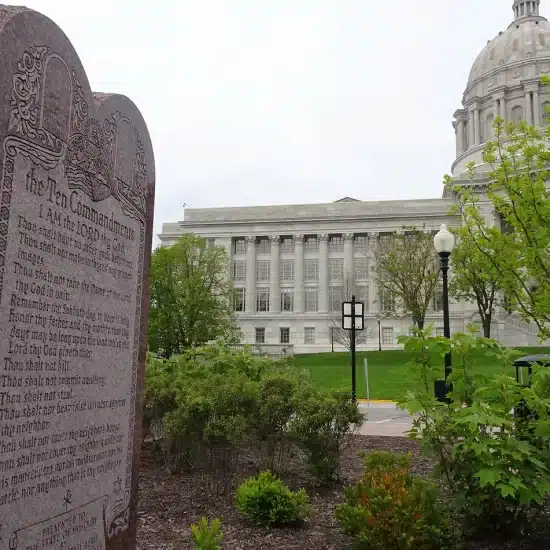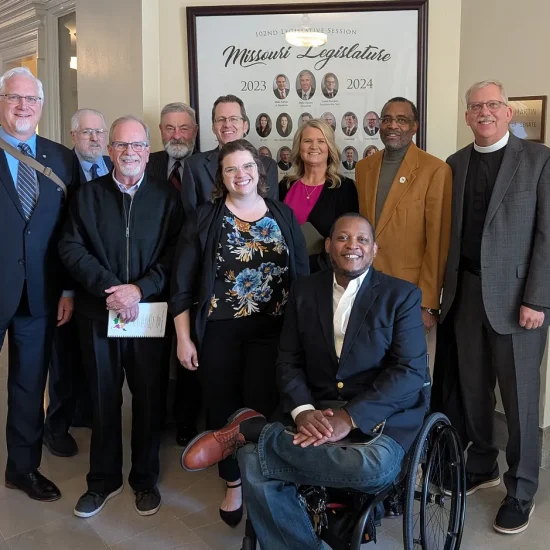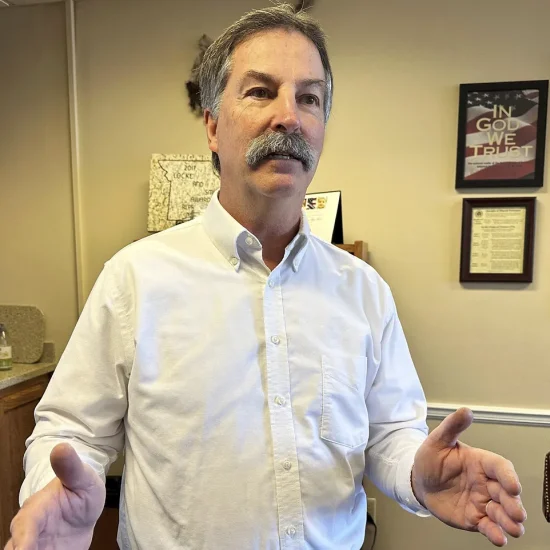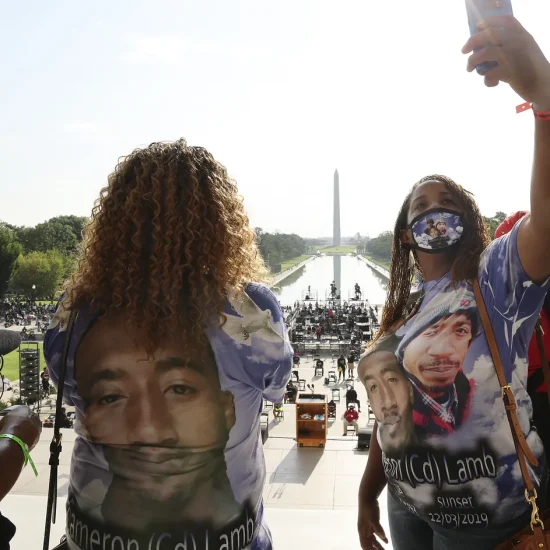[Note: On June 1, 2018, Mike Parson became the 57th Governor of Missouri, following the resignation of Governor Eric Greitens. Parson is the first Baptist to live in the Governor’s Mansion since Matt Blunt left office in January of 2009. This 2017 interview is from Parson’s time as Lieutenant Governor]
In January, Republican Mike Parson took the oath of office as Missouri’s 47th Lieutenant Governor. A member of First Baptist Church in Bolivar, Mo., his ascension makes him the highest-serving Baptist in Missouri’s government. Word&Way Editor Brian Kaylor sat down with Parson for an interview in the Lieutenant Governor’s office in the Capitol. As an online bonus from the print version, the last question and answer looks at civility and “dark money” in politics.
So, what’s the job of the Lieutenant Governor?
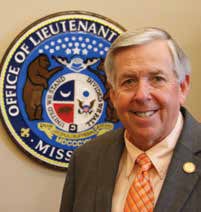 Lt Governor Mike ParsonOne of them, constitutional-wise, is you preside over the Senate, which is one of your main jobs. So, when the Senate’s in session, you’re supposed to be up there — I say, the supervisor or the traffic cop, I guess because I’m an old sheriff and in law enforcement for a lot of years. But you’ve got to make sure everything goes right. Your one voting opportunity you have is if there’s ever a tie-vote and as lieutenant governor you break that tie. But, really, you’re there to make sure everything goes according to plan, according to the rules and that things are done proper. And, you know, that’s a position that suits me well because I’ve always been in somewhat of leadership positions throughout the course of my career.
Lt Governor Mike ParsonOne of them, constitutional-wise, is you preside over the Senate, which is one of your main jobs. So, when the Senate’s in session, you’re supposed to be up there — I say, the supervisor or the traffic cop, I guess because I’m an old sheriff and in law enforcement for a lot of years. But you’ve got to make sure everything goes right. Your one voting opportunity you have is if there’s ever a tie-vote and as lieutenant governor you break that tie. But, really, you’re there to make sure everything goes according to plan, according to the rules and that things are done proper. And, you know, that’s a position that suits me well because I’ve always been in somewhat of leadership positions throughout the course of my career.
And the other things that are really kind of a priority are you advocate for veterans in the state; you’re kind of their spokesman for the veterans in the state. Serving two tours of duty in the United States Army overseas kind of helps me with that. And then you do tourism, which is the second-largest industry in the state.
And then seniors, which is something I always joke around saying, “I’ve now got enough gray hairs now I qualify in that category!” Advocating for seniors is kind of a way to pay back a little bit to what people have done in their careers to make sure they have a quality of life as they finish life here.
Those are kind of the main things. And then agriculture is kind of a given for me — not that it’s under the lieutenant governor’s blanket per se, but I’m the only statewide-elected official from a rural area. I’m the only one that’s a farmer. I’m kind of proud of that factor, that I come from rural Missouri and I have that background. … It’s kind of the way I grew up — in a small town — that I bring those values. The town I grew up in was like 356 people.
What’s it like growing up in a town of just 356 people?
There are two things I recall that bind you together in that town at that time. Church is number one. You’re much more, probably, involved in your church in the little towns than you are when you get to bigger areas — for some.
And the second thing is neighbors. When I grew up, you always helped one another; you never thought about not helping each other. That was just kind of the way of life and that’s something we’ve got away from in time. Shoot, we live kind of in a little subdivision and sometimes I really seldom see my neighbors. If you do, it’s a wave, where in the days past we used to know about neighbors everything there was to know about them.
Same thing with the church. You knew members of your church. Of course, I grew in a little Baptist church. But in those days, it was church, it was Sunday night, Wednesday night, revivals and you had those Christian roots in you. I always say, what you did with those [roots] is a whole different story, but you had that fundamental foundation for Christian values.
I always think coming from that background probably has always made me a better person as a candidate and probably was one of the reasons that I got elected to the second-highest office in the state — because of those values I learned as a kid in that small town and that small school, knowing what it meant to respect one another and maintain that throughout my life.
I hope someday, when politics are over, somebody says, “You know, Mike Parson was a good statesman.” I always say the difference between a politician and a statesman [is] a politician is always worried about themselves and the next election. And you see that happen a lot. But I think statesmen are truly the ones who worry about the next generation.
You’ve been in office quite a while — state senator, state representative, sheriff — what’s the role your faith played in your life as a public official?
First of all, I can’t imagine even beginning to do these jobs if you don’t have faith. If you’re not a believer, there’s no way, I believe, you can be a truly effective leader because when you are in this arena you are a leader. And to make decisions without faith, to me, would be impossible. I don’t know how you make a decision and how you’re going to affect the future if you don’t have belief and faith.
There’s been so many time as a sheriff — even as a representative or a senator — that you find yourself in very difficult situations. What decision do I make? And what is my guidance, what is my judgment to make that call? First thing you’ve got to realize is you’re not in control. As much as you think you are — as much as when you get up here in this arena and everybody slaps you on the back and tells you how wonderful you are and you’re a great guy and you’re the second-highest officer in the state — you’re really not in control. God’s in control in those situations. There’s such a huge comfort in that sometimes when you get in one of those trial periods when you’re thinking, “Oh, man,” — you’re wringing your hands — “what am I going to do” and “I’m going to hurt somebody’s feelings.” That’s when you go to faith, that’s when you ask for help.
There’s a lot of good people here trying to do things that have good Christian values. I’m thankful for that, that you kind of know who they are. One of the things we talk about in my Sunday School class sometimes is how you present that? How do you present yourself — not simply because I’m here in [the Captiol], but as all of us do as individuals when you go down the street, when you go into a buffet, when you meet people. How do you present yourself as a Christian and do you acknowledge that? … Sometimes you try to implement that up here. And sometimes it’s just simple things: it’s just walking [in] the hallway and somebody says, “How are you?” And all you have got to do is say, “Hey, I’m blessed.” Any kind of little word that associates with that to let that guy know what your values are.
When it comes to public life, the area Baptists are most known for and have made the most contributions has been religious liberty as the first to push for religious liberty not just for me but for everybody.
Yes!
So, what do you see — both good and bad — in terms of religious liberty in public life today?
I think there’s a huge burden for all us to protect religious freedoms. I think that’s a calling we all have, as Christians, to preserve that. I don’t think you can take a sideline seat, sit on the bench and say, “Hey, here I am if you need me.” You’ve got to go out there and fight for those religious beliefs.
Now, you also have to be careful. There is a balance to that. You just can’t be so radical about it that, all of a sudden, you’re ineffective. Or you’ve got to be careful you’re not showboating with things like that. It’s great to be the leader, it’s great to be a voice, but you’ve got to be careful about just using that for political purposes, too.
One of the things that’s always difficult in today’s time is the homosexual issue or with those type of issues that come up. I’m old school. I know how I believe, I know what’s going to happen to these people.
But at the same token, when you get up in this arena and, all of sudden, you have to make a decision. For example, in the workforce. If somebody’s working for you and they’ve worked for you for seven years and, all of a sudden, you find out that they’re involved in this sort of activity, what do you do with that person? Do you fire them for that? Then you get into that individual’s rights, do you they have a right to still remain in a job? And, so, if you say, “Well, look, I don’t think you should fire the person because you found that out,” well, all of a sudden people turn on you pretty quick and say, “Oh, so you support them.” No, I never said that at all — and I don’t support them. I might give my opinion to that person of why I think it’s wrong and what I think’s going to happen — what they do with that, so be it. But do I think that you should go out there and fire them for that? I don’t. So, that becomes very controversial sometimes when people hear you say that. It’s like, “Wait a minute, you’re Baptist, you’re a born-again Christian, you shouldn’t say that.”
In Southern Baptist life, when it comes to faith and politics, a big debate right is between some leaders and pastors who criticized Donald Trump during the campaign and those who supported him. As someone who’s in office, do you have any thoughts on this?
Pastors have a role to play in the process. But you should be playing that role at every election. You should be just as much supportive of somebody as you are negative about somebody. I tell my Sunday School class and the members of my church that I believe firmly that the churches should be involved in politics. We’ve got to break this old idea that you can’t do both.
There’s some things [Trump’s] done that I don’t approve of. But, truth be known, you can go back and look at my life, my career and you’ll find things that most people wouldn’t have approved of in my life at some point. Because I’ve made my share of mistakes. I’ve sure cast my share of sins. But it’s what you do with that that’s important. So, to be critical of [Trump]? I don’t have a problem with being critical. But is that the only purpose you’re doing? Are you on the positive side when things go right? Were you there two years ago when you had a president [Barack Obama] who was a Christian believer? Were you out there fighting for him? So, I think there’s a balance to that when we go out there. I want the president of the United States — whichever party he’s branded with — I want him to do well for the country.
About two years ago Tom Schweich (then a Republican gubernatorial candidate) committed suicide after ads attacking his appearance. You were a supporter of him, then briefly jumped in the gubernatorial race before moving to the lieutenant governor race. So, reflecting back on all that, where do you think we are politically in terms of polarization and incivility?
Most of the things in these campaigns any more are driven by consultants and are driven by money. Candidates will do anything in the world to get elected — and that’s the sad part of where our political process has gone to. But you don’t have to go down that road. One of the things I did when I ran for lieutenant governor is [being] committed that we weren’t going down that road. We were going to run a positive campaign. We were going to talk about what my accomplishments are, why we wanted to make sure people knew who we were, and do you believe who I am. That’s what I went out there to do.
You’ve got all these millionaires any more that, frankly, try to buy the process with money. And they go out there and try to put this image on a candidate, put this spin on it. It’s just unfortunate that we’re at this point, but it’s just the truth. And what’s sad is it seems like they just keep getting more and more of a foothold about selecting who those people are. I’ve always been a believer — because I started on such a small scale as county sheriff — that you’re getting away from the everyday person from running for office. You have all these committees — what I call “dark money” — and I’ve been pretty open about that since the Tom Schweich situation.
Unfortunately, that’s the way the game works. I hope at the end of my career — and I don’t have a lot of elections left in me — somebody says, “You know what, old Parson did it a different way; I’d like to take that route.” Right now, in the political arena — the Tom Schweich situation is a perfect example — good gosh, you’re making fun of someone’s looks? Is that really who we are? Is that really what our values are? Especially if you’re a Christian.
They’ll spend millions of dollars to destroy one’s honor, to destroy their lives. That’s just not who I am. That’s just not what I believe in. Somebody’s got to stand up at some point and say, “It’s wrong.” And that’s what I did with the Tom Schweich situation. We Christians, we need stand up to that and say, “I’m not going to do that.”


